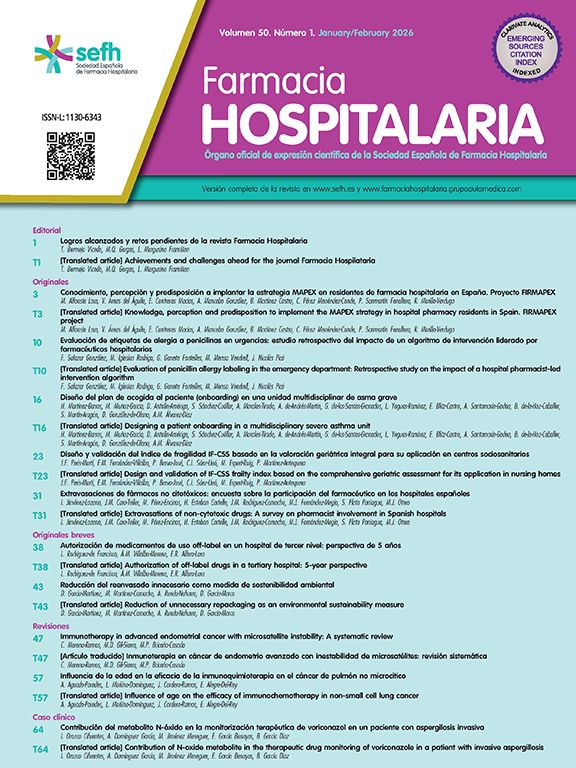“Classical” or phenotype-based medicine has brought about significant advancements in the diagnosis and treatment of diseases by making use of clinical information (signs and symptoms) as well as the classical complementary tests (hemograms, biochemical analyses, immunologic blood testing and imaging studies). The development of molecular biology, together with the technological innovations required to make it possible, have brought to light the huge complexities inherent in human biology, demonstrating that each individual –and sometimes each disease– is unique. We have also learnt that diseases begin long before any of the signs and symptoms that characterize them become apparent. Nowadays we know that the risk of getting a disease and the likelihood that we may respond to medical treatment are intimately related to our genetic makeup and to the environment around us. All of these developments are transforming traditional phenotype-based medicine and making way for what has been called molecular or endotype-based medicine. We at a point where diagnosis-based medicine is becoming part of our past, and what has been variously designated as predictive, prognostic, or personalized medicine is coming to the fore1.
Precision personalized medicine is an emerging clinical model that integrates molecular knowledge with information about patients’ clinical conditions and exposure to different environmental factors to obtain an earlier diagnosis and tailor the treatment to each individual's characteristics. In short, the goal is to promote prevention and ensure that patients get the safest and most appropriate treatment1,2.
Ramudo et al. describe the development and analytical validation of a next-generation massively parallel sequencing platform (NGS) applied to clinical pharmacogenetics3. These authors developed a panel covering a total of 12,794 DNA base pairs representing 389 genes, which is more than the number of genes included in the panels in current use. This was possible thanks to the use of next-generation sequencing, which allows an analysis of thousands of variants in one single study. The panel includes genomic regions of great pharmacogenetic interest such as CYP2D6 and HLA-B. The CYP2D6 region is responsible for the metabolism of around 25% of the drugs currently on the market, its genotype being essential for metabolizing antidepressants, among other medications. The HLA region is associated with the prevalence of autoimmune diseases and with hypersensitivity to the drugs used to treat such conditions4.
In the last few years, the treatment of autoimmune diseases and, specifically, rheumatologic ones, has experienced a significant evolution, particularly following the emergence of biologic disease-modifying drugs (bDMDs)5. However, rheumatologists still lack a tool they can reliably use to predict the likelihood of remission or therapeutic failure following initiation of treatment with bDMDs. The drug selection and dose titration processes are based on trial and error, and current clinical response evaluation criteria are of a clinical nature. The search for biomarkers that may help personalize and optimize treatment in patients with rheumatic conditions is yielding its first (promising) results6,7. A recent metanalysis8 including over 47 different studies suggests that genes such as CHUK, PTPRC, TRAF1/C5, NFKBIB, FCGR2A and IRAK3, as well as IgG Gm1, CD84, SLC9A7, CLEC2D, KCNIP1, ENOX1, GALNTL4, CD69, IL10 and PDE3ASLCO1C1 are located in regions associated with a positive therapeutic response in patients with rheumatoid arthritis (RA). Moreover, patients with a larger number of risk alleles tend to exhibit a higher risk of failing to respond to treatment. The development of tools such as the one proposed by Ramudo et al.3, including an analysis of the stated genes and other potential candidates, could improve the treatment delivered to our patients and make personalized medicine a reality in daily practice.
The group of biomarkers associated to a therapeutic response are not exclusively of a genetic nature; some proteomic biomarkers have also shown themselves to be capable of predicting response to treatment9. The presence of anti-citrullinated peptide antibodies (ACPA) is associated with a better response to rituximab and abatacept in subjects with RA10. Two
novel protein biomarkers have recently been reported, which are able to predict therapeutic response. The first one, capable of predicting response to infliximab in patients with RA, is the anti-CENPF antibody (centromere protein F), which has a prediction accuracy of 0.756 as measured by AUC (area under the curve)11. The other one, capable of predicting response to the combination of chondroitin sulphate and glucosamine in patients with knee osteoarthritis (OA), is the orosmucoid 2 (ORM2) protein with an AUC of 0.80612. These findings have great clinical relevance, especially given the controversial efficacy of symptomatic slow action drugs for osteoarthritis (SYSADOAS) in patients with OA. Taking into account that there is a group of patients that exhibit a positive therapeutic response, it is of the essence to select those individuals most likely to benefit from this treatment as this will ensure that they will show a clinical improvement, and make it unnecessary to administer drugs such as NSAIDS, which are associated with severe side effects.
In a nutshell, medicine in general and rheumatology in particular have in the last few years experienced a phenomenal development as a result of the advances made in the field of molecular biology. The body of knowledge generated by the different -omics (genomics, proteomics, transcriptomics, epigenomics), with the help of bioinformatics, will permit the combination of large amounts of patient data (big data) and the development of the tools required to deliver precision personalized medicine. It is our responsibility to ensure that every patient receives the treatment they need at the right time, avoiding unnecessary expense and contributing to the sustainability of the healthcare system. For those reasons it is essential to apply and implement personalized medicine in daily clinical practice.






